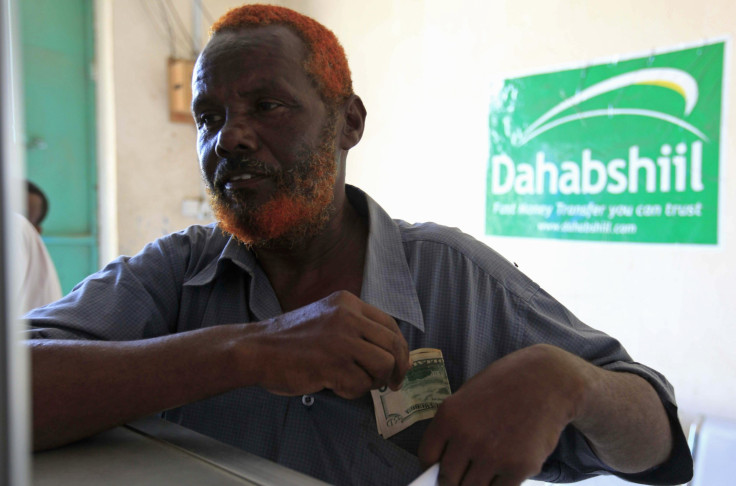After Garissa Al-Shabab Attack, Kenyan Government Shuts Down Somali Money Transfer Firms

The Kenyan government has launched an offensive against militant group al-Shabab after its deadly attack in Garissa last week. But airstrikes aren’t the only way to attack: Kenya is also targeting the group’s finances. However, a new sweeping declaration has left some civilians worried about getting cut off from much-needed cash transfers.
Some citizens have taken to social media to voice their concerns:
Dahabshil is closed today. Asked the guards why and they said "this is one of the Money Transfer companies with licences withdrawn by GOK
- #147NotJustANumber (@timnjiru) April 8, 2015
Kenyan officials have ordered all banks and microfinance institutions to stop working with people thought to be associated with al-Shabab, local media and the BBC reported. Officials have also reportedly closed 86 “entities” thought to be associated with the group, 13 of which are major money transfer companies.
Offices of the 13 money transfer companies whose licenses to operate were suspended by #Kenya Govt are closed today. #GarissaAttack
- Harun Maruf (@HarunMaruf) April 8, 2015“Shabab makes money from illicit trade and taxes businesses and people to remain viable,” said Rudolph Atallah, a former Africa counterterrorism director at the Pentagon, and current head of White Mountain Research, a security consultancy based in Virginia.
Al-Shabab is a Somalia-based terrorist group that has been carrying out increasingly deadly attacks -- not only in an attempt to oust the Western-backed Somali government, but also in retaliation against neighboring countries, such as Kenya, that have supported that government. Since 2013, members have hit dozens of targets in Kenya. For example, they killed 67 people at the Westgate Mall in Nairobi, 28 others on a bus and 36 people at a quarry.
Atallah noted that the militant group has been evolving to work on a budget after substantial losses. After extended fighting in Somalia’s capital of Mogadishu, the group’s numbers have dwindled in recent years from an estimated 7,000 to just 3,000, the New York Times reported, citing analysts. Just last month military forces reportedly seized an island in the port of Kismayo that had been a key al-Shabab stronghold and source of income.
Nonetheless, the group is known to have diversified methods of gaining income that include kidnapping, smuggling and donations from abroad. Fake nongovernmental organizations (NGOs) also are a very popular method used by al-Shabab and other groups to launder money in plain sight. Such organizations have been known to funnel money to militants under the guise of charity projects, with or without the knowledge of donors. For example, two women in the United States were sent to prison in 2011 after they were caught soliciting donations from Somali neighborhoods “under the false pretense that the funds were for the poor and needy,” when they were really “providing material support to al-Shabab.”
Consequently, Kenyan officials shut down more than 500 NGOs in December last year after they couldn’t show complete financial records. This time around, local reports say 13 of the “entities” targeted in the shutdown are money-transfer companies that many civilians use on a regular basis.
Every year, Somali migrants living elsewhere transfer roughly $1.3 billion, about $215 million of which comes from the United States, Oxfam International said in a report, adding that these cash flows represent a significant share of Somalia’s economy and will eventually help reduce the country’s need for assistance from foreign governments.
Dahabshiil is one of the largest of these companies, and one of 13 that have been shut down. Local reporters say the Somali government may take action against this soon.
#Somalia launches a Special Task Force on #Remittances (STFR) to seek ways to keep financial lifelines open http://t.co/OolQzXnl2m
- Somalia Newsroom (@SomaliaNewsroom) April 8, 2015
© Copyright IBTimes 2024. All rights reserved.






















